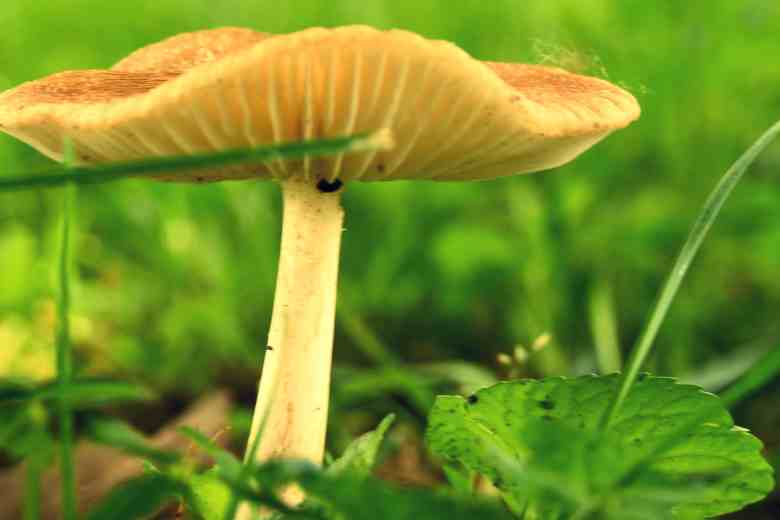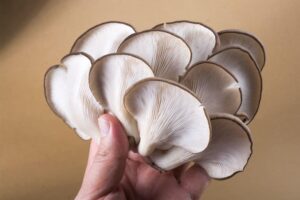
Mushroom is a type of fungus and is consumed by many people best replica watches around the world. The question of whether mushroom is halal or not has been a matter of debate among Muslims for a long time. Halal is a term used to describe food and drink that is permissible according to Islamic law.
While some Islamic scholars consider mushrooms to be halal, others argue that mushrooms are not explicitly mentioned in the Quran and therefore cannot be considered halal. Ultimately, it is up to individual Muslims to make their own informed replica watches uk decision about whether or not to include mushrooms in their diet.
What is Halal?
Halal is an Arabic word meaning ‘lawful’ or ‘permissible’. It is used to describe a set of dietary laws and codes of practice based on Islamic teachings. Halal foods are those that are allowed for consumption under Islamic law.
These include plant-based foods like grains, legumes, fruits and vegetables, as well as animal-based foods such as beef, chicken, fish, eggs and dairy. Halal foods must also be prepared according to Islamic guidelines, which includes the slaughter of animals in a humane way with a sharp knife and by invoking the name of God.
Halal also applies to other aspects of life, such as banking and finance, fashion, cosmetics, and pharmaceuticals.
Types of Mushrooms and Their Status in Islam
Mushrooms are fungi that come in a wide variety of species. They can be found in many parts of the world and have diverse uses ranging from culinary to medicinal to recreational. Here’s a basic breakdown:
Types of Mushrooms:
- Edible Mushrooms: These are mushrooms that are safe to eat and are often used in cooking.
- White button mushrooms (Agaricus bisporus): These are the most common type found in supermarkets.
- Shiitake (Lentinula edodes): Common in Asian cuisines.
- Portobello (Agaricus bisporus): These are mature white button mushrooms.
- Oyster (Pleurotus ostreatus): Have a delicate flavor and are often used in Asian dishes.
- Chanterelles (Cantharellus cibarius): Have a distinct golden color and a fruity smell.
- Morels (Morchella spp.): Have a unique honeycomb appearance.
- And many more.
- Medicinal Mushrooms: These are mushrooms known for their potential health benefits.
- Reishi (Ganoderma lucidum)
- Chaga (Inonotus obliquus)
- Lion’s Mane (Hericium erinaceus)
- Turkey Tail (Trametes versicolor)
- And others.
- Psychoactive or Hallucinogenic Mushrooms: These contain compounds like psilocybin that can cause hallucinations.
- Psilocybe cubensis
- Psilocybe semilanceata
- Panaeolus cyanescens
- And others.
- Poisonous Mushrooms: Consuming these can be harmful or fatal.
- Death Cap (Amanita phalloides)
- Destroying Angels (Amanita spp.)
- Fly Agaric (Amanita muscaria)
- Autumn Skullcap (Galerina marginata)
- And many others.
Status in Islam:
In Islam, foods and substances are primarily classified as Halal (permissible) or Haram (forbidden).
- Edible Mushrooms: There is no explicit mention of mushrooms in the Qur’an. However, based on the Hadith and scholarly interpretations, generally, edible mushrooms are considered Halal, as long as they are not harmful or intoxicating. The principle in Islamic dietary laws is that all foods are Halal unless specifically prohibited.
- Medicinal Mushrooms: If consumed for genuine health benefits and not for intoxication or harm, they are typically viewed as Halal. However, as with all medicines, one should consult with knowledgeable scholars or Islamic health professionals before use.
- Psychoactive or Hallucinogenic Mushrooms: Since these mushrooms can intoxicate and alter the mind, they are generally considered Haram in Islam, akin to the prohibitions on alcohol and drugs.
- Poisonous Mushrooms: Consuming anything harmful is against Islamic dietary guidelines. Consuming poisonous mushrooms would be considered Haram.
As with all matters of religious interpretation, there can be differences in opinions among scholars. It’s essential to consult with knowledgeable individuals or institutions in one’s community if there are uncertainties.
Different Views on Mushroom Consumption
Mushrooms have been a part of human diets for thousands of years, and views on their consumption vary widely due to cultural, medicinal, spiritual, and personal beliefs. Here are some different perspectives on mushroom consumption:
- Nutritional and Culinary View:
- Mushrooms are known for their culinary versatility and unique umami flavor.
- They’re a source of protein, fiber, vitamins (like vitamin D when sun-exposed), and minerals.
- Chefs and home cooks alike appreciate their ability to absorb and complement flavors.
- Medicinal Perspective:
- Traditional Chinese Medicine and other traditional practices use mushrooms for their potential health benefits.
- Some mushrooms, like Reishi and Chaga, are believed to have immune-boosting properties.
- Modern medicine is researching potential benefits in mushrooms, such as their anti-tumor properties or their role in improving brain health.
- Spiritual and Recreational View:
- Certain indigenous cultures have used psychoactive mushrooms in spiritual ceremonies for centuries.
- In the modern context, some people consume psychoactive mushrooms recreationally for their hallucinogenic properties.
- There’s ongoing research on the therapeutic use of psilocybin (found in certain mushrooms) for conditions like depression.
- Safety Concerns:
- Wild mushroom foraging can be risky. Many edible mushrooms have toxic look-alikes.
- Some people may be allergic or sensitive to mushrooms.
- There’s a concern about consuming poisonous mushrooms, which can result in severe illness or death.
- Environmental Perspective:
- Mushrooms play an essential role in ecosystems by decomposing organic matter and recycling nutrients.
- Some environmentalists advocate for mushroom cultivation as a sustainable food source, given their relatively low environmental impact compared to other foods.
- Religious Views:
- As mentioned earlier, in Islam, edible mushrooms are generally considered Halal, but hallucinogenic ones are typically seen as Haram.
- Some Christian sects might view hallucinogenic mushrooms as a gateway to sinful behavior.
- Certain indigenous cultures view psychoactive mushrooms as sacred, using them as a tool for spiritual connection.
- Economic Perspective:
- Mushroom cultivation is a significant industry in many countries.
- Gourmet and medicinal mushrooms can fetch high prices in markets.
- The potential legalization and medical use of psychoactive mushrooms can lead to new economic opportunities and challenges.
- Personal Preference:
- Some people love the taste and texture of mushrooms, while others dislike them.
- Personal health beliefs might lead some individuals to include specific mushrooms in their diet for perceived health benefits.
The Role of Mushrooms in Islamic Cuisine
Mushrooms have long been a part of Islamic cuisine, playing an important role in both traditional and modern dishes. From the use of mushrooms in Middle Eastern rice dishes to their inclusion in soups, salads, and pastries, mushrooms are a versatile and delicious ingredient.
Not only are they a tasty and nutritious addition to meals, but they also offer a variety of health benefits. Mushrooms can provide essential vitamins, minerals, and fiber, as well as antioxidants that can protect against cell damage.
Eating mushrooms can even help combat diseases like cancer and diabetes. So the next time you’re in the kitchen, consider incorporating mushrooms into your meal – they can be a delicious and nutritious way to enjoy a meal.
Health Benefits and Risks of Eating Mushrooms
Mushrooms are an increasingly popular type of food, due to their delicious taste, versatility, and health benefits. They are low in calories, fat-free, cholesterol-free, and contain important vitamins and minerals.
They are also a source of protein, fiber, and antioxidants. But while mushrooms can be a nutritious part of your diet, there are also some potential risks associated with eating them. These include allergic reactions, pesticide residues, and possible contamination with certain types of fungi.
It’s important to understand these potential risks and know the types of mushrooms that are safe to eat. With this knowledge, you can enjoy the health benefits of mushrooms while minimizing your risk of adverse reactions.
FAQs About the Is Mushroom Halal
Are all mushrooms halal?
Answer: No, not all mushrooms are halal. It is important to check the ingredients list and making sure that all ingredients used are halal.
Is it permissible to eat mushrooms if they are not certified halal?
Answer: No, it is not permissible to eat mushrooms that are not certified halal as the origin of the mushrooms is not known.
How can I tell if a mushroom is halal?
Answer: The best way to ensure that a mushroom is halal is by purchasing mushrooms that have been certified halal by a reliable halal certification body.
Conclusion
Lastly, the answer to the question of whether or not mushroom is halal is not a clear-cut one. Mushrooms are not explicitly mentioned in the Qur’an or Hadith, and thus there is no clear answer as to whether or not they are halal. Ultimately, the decision of whether or not to consume mushrooms lies in the hands of the individual. Those who wish to adhere to the strictest interpretation of Islamic law should abstain from eating mushrooms, while those who are more comfortable with a more lenient interpretation can choose to eat them.





